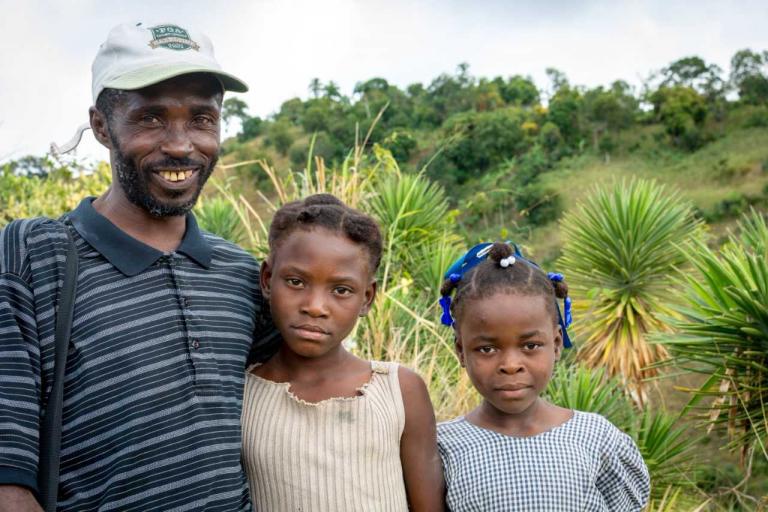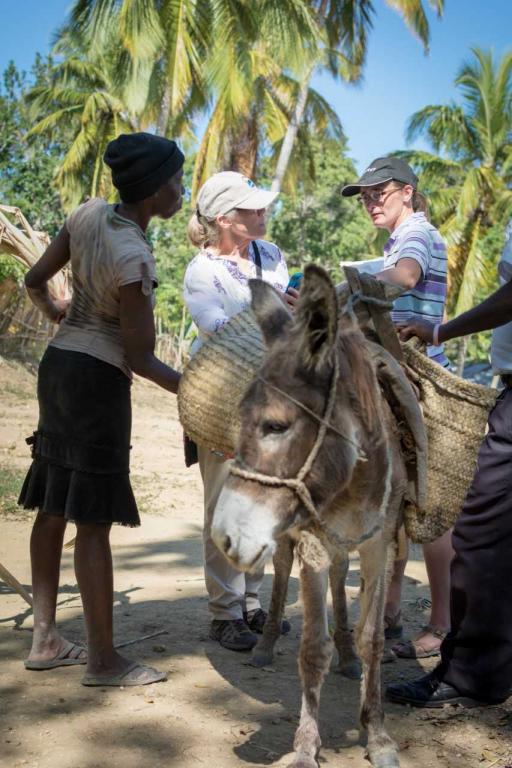Note: This post originally appeared on Patheos.
It’s a common sight: American church groups traveling in matching t-shirts, with a catchy phrase describing how they are going to help Haiti. Often their help consists of raising money for an orphanage, doing maintenance work at the buildings and playing with the children. After a week the group leaves, feeling transformed and happy to have helped.
How helpful is this though? Is volunteering with orphanages a positive way to make a difference?
Orphanages supported by well-meaning congregations and faith-based groups from the U.S. are a common phenomenon in Haiti. However, the word ‘orphanage’ is not a correct description of this type of institution. According to a recent report an estimated 80 percent of the children living in them have at least one living parent.
Ironically, most of the support going to self-labeled orphanages in Haiti comes from U.S. groups. But as early as 1909, the U.S. government began to recognize the importance of family values and develop alternatives to foster care, rather than sustain institutional orphanages. It was then that the foundation was laid for social welfare to support families and family-strengthening initiatives in the U.S. Orphanages are no longer utilized domestically. In addition, the U.S. enacted policies promoting family-based care, not orphanages, in their official international development assistance. The UN convention on the rights of the child also states that children have the right to know and be cared for by their birth families and not to be separated from their parents (articles 7 and 9).
The best place for a child to grow up is with his or her parents. If this is not possible, uncles and aunts are the first alternative care. In fact, in many Haitian households children are entrusted to the care of uncles and aunts after the passing of their parents. Care for extended family is an important value and responsibility in Haitian culture.

A recent report published by Lumos shockingly found that there are many cases of abuse in Haitian orphanages, including verbal, mental, physical and sexual violence. Children in orphanages are also at a higher risk of human trafficking. Given the size of families, parents often have difficulties taking good care of all of their children. Consequently, children are successfully recruited from their biological families upon false promises that good care will be taken of their children. More ‘orphans’ to report in an orphanage means more money for the director.
A 2013 IBESR (national Institute of Social Wellbeing and Research) assessment evaluated 752 orphanages in Haiti with 30,000 children. 140 of these institutions required immediate closure due to the extremely poor conditions in the institutions that place children at risk of severe harm. That means 20% of institutions were harmful for children. The same report found that only 15 percent of orphanages in Haiti are officially registered.
Working and living in Haiti over the past ten years, I have seen parents struggle to provide a living and to send their children to school, preparing a better future for them. I know too well the challenges facing Haitian families, and I also understand the desire of American groups to offer help. These visitors are well-intentioned, and have a genuine desire to help families and children in Haiti. But “helping” is a complicated process.
The chores done by volunteers – painting and other facility maintenance or upgrades – can be done by skilled and unemployed Haitian workers (painters, plumbers or other professionals), who often have trouble finding enough employment already. Most importantly, the money raised on behalf of the children often does not really go to them. Instead, many orphanages are merely a business, good to fill the director’s pockets.
Most orphanages are established with the best of intentions, but good intentions can still have negative consequences. As summarized in the Lumos reports, 80 years of research has demonstrated the significant harm caused to children in orphanages who are deprived of loving parental care and consequently suffer lifelong physical and psychological harm. Public policy in Haiti favors reducing reliance on orphanage care, to ensure children can be raised in families. U.S. donors and volunteers, however, continue to support Haitian orphanages on a large scale.
If not orphanages, what would be a better way to support Haiti’s children?

If your group or congregation is engaged in orphanage-support:
- Ensure that partner orphanages are properly registered with the Haitian government.
- Try to ensure that they are not involved in harmful or illegal practices, and that funding and other forms of support are not mismanaged. Ask how children arrive at the orphanage, ask if there are living relatives, ask to see a financial report on the support you send, and when possible try to have an independent translator.
- If possible, move away from taking part in short-term volunteering or mission trip visits to orphanages, which may be harmful to child development.
If your church or group does not partner with an orphanage; or wants to move away from supporting an orphanage:
- Supporting ‘orphanages’ where the majority of children are not orphans is not a solution to a problem. Instead, parents need support to be able to take care of their children. A good way to support is therefore to consider funding community development and family preservation programs such as access to education, clean water, day care, sport facilities, job training or income generating activities via access to microcredit (for animal husbandry or small businesses for example). With better access to education and possibilities to provide for their families, there is less incentive for parents to give in to sending their children to an orphanage.
- In the U.S, congregations can educate others by promoting understanding that children should be in families, not orphanages, and that funds could be better spent on preventing the separation of children from their families.
It can be very difficult to work through the cultural and language barriers, even with really good partners. If you need support please feel free to contact mdegreef@cwsglobal.org with questions.
Margot DeGreef is the country representative of Haiti for Church World Service. Margot joined CWS in Haiti in 2011 and oversees their long-term development work and emergency response work. She moved to Haiti in 2008, but was born and raised in the Netherlands. She has a master’s degree in international economics and business from the University of Groningen.
